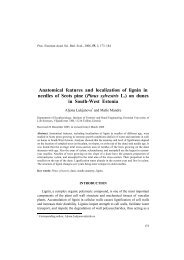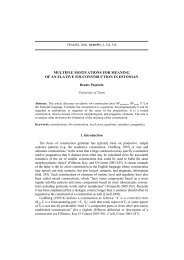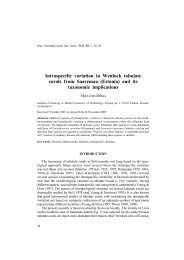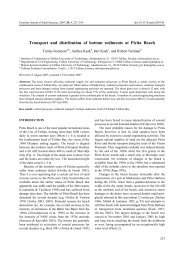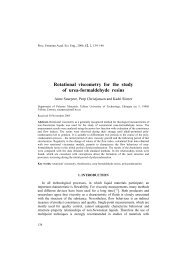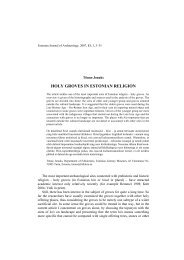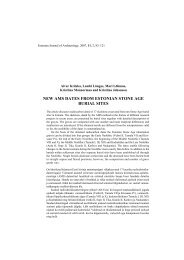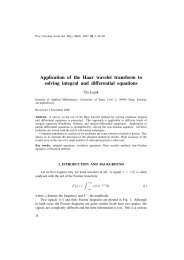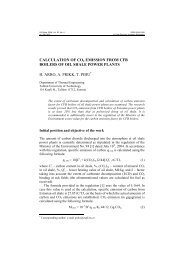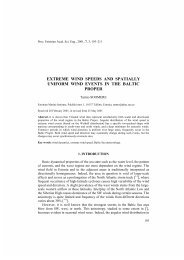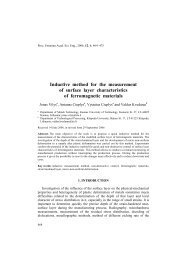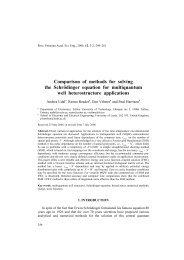Dynamic coefficients in impact mechanics
Dynamic coefficients in impact mechanics
Dynamic coefficients in impact mechanics
Create successful ePaper yourself
Turn your PDF publications into a flip-book with our unique Google optimized e-Paper software.
0.140<br />
Coefficient of dynamic friction<br />
0.130<br />
0.120<br />
0.110<br />
0.100<br />
0.090<br />
W15<br />
C20<br />
C20<br />
0.080<br />
5 10 15 20 25 30<br />
Initial velocity, m/s<br />
(a)<br />
0.140<br />
Coefficient of dynamic friction<br />
0.120<br />
0.100<br />
0.080<br />
0.060<br />
0.040<br />
W15<br />
C20S<br />
C20<br />
0.020<br />
25 35 45 55 65 75 85<br />
Impact angle, deg<br />
(b)<br />
Fig. 7. Coefficient of dynamic friction: (a) vs particle velocity; (b) vs <strong>impact</strong> angle.<br />
parameters. In all probability, some energy is accumulated by <strong>in</strong>terphases up to<br />
the velocity when tensile stresses both <strong>in</strong> the target surface and particle <strong>in</strong>itiate<br />
crack propagation [ 9 ].<br />
As it was expected, f is a function of both <strong>impact</strong> angle and <strong>in</strong>itial velocity<br />
of the particle (Fig. 7). Moreover, the coefficient of friction depends on the<br />
relative slid<strong>in</strong>g velocity between the particle and the target and may be estimated<br />
34



